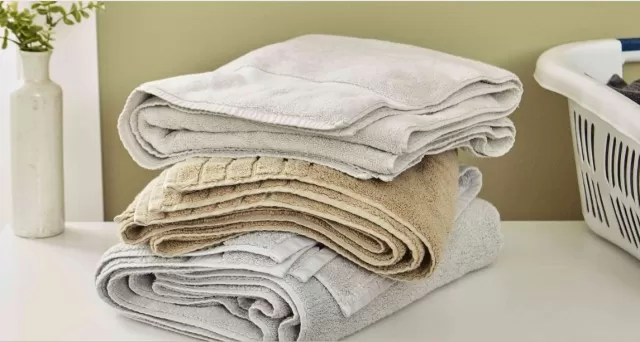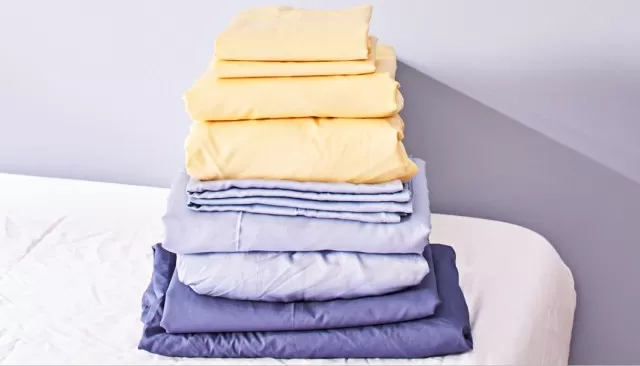Although washing your bed sheets along with towels isn’t as detrimental as tossing them into a load with items containing zippers or hooks, it’s still not a recommended practice.

The sensation of slipping into a bed adorned with freshly laundered sheets is truly delightful.
However, the laundry process might not be as enjoyable, especially when it comes to folding fitted sheets. Nevertheless, it’s an essential step to ensure that you have the coziest sleep experience.
Furthermore, it’s imperative to carry out this task correctly, which means you should probably refrain from throwing your luxurious 400-thread count bed sheets into the same load as your sweaty gym clothes.
As a general guideline, it’s advisable to wash your sheets separately. There are good reasons for this approach: Washing them on their own allows the sheets to move freely in the water, facilitating a more Thorough Cleaning process while also minimizing the risk of potential damage.
Below, we outline the precise method for washing your towels and sheets to maximize their longevity.
Why It’s Prudent to Avoid Washing Towels and Sheets Together

Although washing your sheets along with towels isn’t as detrimental as tossing them into a load with items containing zippers or hooks, it’s still not a recommended practice.
The thickness and substantial weight of towels can potentially cause significant damage to your beloved sheets. This poses a risk of tearing them, and towels are notorious for shedding a significant amount of lint.
According to Lindsey Boyd from The Laundress, as cited in Martha Stewart Living, “The lint from the towel will get onto the sheets, and that’s not something you want to deal with.
Moreover, the distinct difference in the weight and texture of sheets (thin and soft) compared to towels (thick and rough) necessitates distinct wash and dry cycles.
The Folde highlights that linens and lighter fabrics tend to dry more efficiently compared to towels. Consequently, if you wash and dry them together, your sheets might end up over-dried, potentially leading to damage, while the towels may retain a hint of dampness, potentially promoting the growth of mold or mildew.
As The Folde aptly describes it, achieving the right balance between linens in the dryer is akin to a harmonious dance.
Just like you wouldn’t want dancers moving to different tunes, you shouldn’t mix linens of dissimilar types in your dryer. When different linens become tangled up, they take an extended period to dry.
It’s advised to limit your dryer cycles to one type of linen to ensure that the drying process proceeds harmoniously.
How Frequently to Launder Your Bedding and Towels

The ideal washing frequency for your sheets and towels differs, making it necessary to maintain separate washing schedules for these items.
According to recommendations from the Sleep Foundation, it’s advisable to wash your sheets once a week. In contrast, Wirecutter suggests that towels should be laundered every three days.
The underlying rationale for these frequent washing routines is consistent: the rapid accumulation of dead skin cells, bacteria, sweat, and body oils on both sheets and towels.
However, there is a noteworthy exception: hand towels may warrant even more frequent washing.
An investigation conducted by Kansas State University in 2015 revealed that hand towels were the most heavily contaminated items in the kitchen.
The study’s findings pointed out a concerning pattern: many participants touched the hand towel before washing their hands, or they used the towel after inadequately washing their hands.
Even after proper hand washing, they would reuse the towel, effectively contaminating themselves once more.
While laundering your sheets and towels separately may appear inconvenient, it’s a practical approach.
By doing so, you can avoid scenarios where your top sheet becomes covered in towel lint, and you won’t need to replace your sets as frequently, saving you both time and money in the long run.
*The information is for reference only.